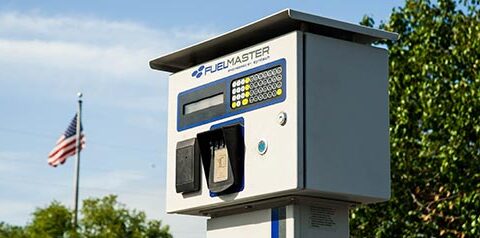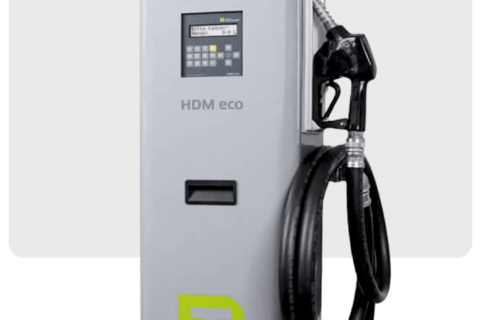Signs Your Fuel Tank Requires Cleaning!
Maintaining a clean fuel tank is crucial for the smooth operation of your vehicle or machinery. Over time, fuel tanks can accumulate sludge, debris, and contaminants that can cause various problems. Knowing the signs that your fuel tank requires cleaning can help you avoid expensive repairs and ensure your equipment runs efficiently. In this blog, we will discuss the key indicators of a dirty fuel tank, the importance of fuel tank maintenance, and how a professional fuel tank cleaning service can help.
Why Fuel Tank Maintenance is Important
Fuel tank maintenance is essential for several reasons:
- Preventing Contamination: Fuel tanks can accumulate dirt, rust, and other contaminants over time. These impurities can mix with the fuel, leading to engine problems and reduced performance.
- Extending Equipment Life: Regular cleaning and maintenance help to preserve the integrity of the fuel tank and other related components, ultimately extending the life of your equipment.
- Ensuring Efficiency: A clean fuel tank ensures that fuel flows smoothly, preventing blockages and maintaining optimal performance.
- Avoiding Costly Repairs: Neglecting fuel tank inspection and cleaning can lead to severe damage, resulting in expensive repairs or replacements.
Signs Your Fuel Tank Requires Cleaning
Identifying the signs of a dirty fuel tank early can save you from significant issues down the road. Here are some common indicators that your fuel tank requires cleaning:
Engine Performance Issues
One of the most noticeable signs of a dirty fuel tank is a drop in engine performance. Contaminants in the fuel can cause:
- Difficulty starting the engine
- Misfires or rough idling
- Decreased power and acceleration
- Increased fuel consumption
If you experience any of these issues, it’s essential to inspect your fuel tank for possible contamination.
Fuel Filter Clogging
The fuel filter is designed to trap impurities before they reach the engine. However, a dirty fuel tank can overwhelm the filter, causing it to clog frequently. Regularly replacing clogged filters without addressing the root cause can lead to more significant problems. If you find yourself replacing the fuel filter more often than usual, it may be time for a fuel tank cleaning.
Visible Fuel Tank Sludge
Fuel tank sludge is a mixture of dirt, rust, and other contaminants that settle at the bottom of the tank. During fuel tank inspection, if you notice a thick, gooey substance, it’s a clear sign that your tank needs cleaning. Fuel tank sludge can restrict fuel flow and damage the fuel pump and injectors, leading to poor performance and potential engine failure.
Unusual Noises from the Fuel Tank
Hearing unusual noises, such as knocking or whining, from your fuel tank can indicate the presence of contaminants. These noises are often caused by the fuel pump struggling to draw fuel through the sludge and debris. Addressing this issue promptly through fuel tank cleaning can prevent further damage.
Fuel Contamination
If you find water, dirt, or other impurities in your fuel, it’s a sign that your fuel tank needs cleaning. Contaminated fuel can cause corrosion and damage to the fuel system, leading to expensive repairs. Regular fuel tank inspection can help identify contamination early and allow for timely cleaning.
Decreased Fuel Efficiency
A dirty fuel tank can negatively impact fuel efficiency. Contaminants can cause blockages and restrict fuel flow, making the engine work harder and consume more fuel. If you notice a sudden drop in fuel efficiency, it may be time to consider a professional fuel tank cleaning service.
How to Address a Dirty Fuel Tank
Once you’ve identified the signs of a dirty fuel tank, it’s crucial to take action to prevent further damage. Here are some steps to address the issue:
- Regular Fuel Tank Inspection
Conducting regular fuel tank inspections is vital for early detection of contamination. Look for signs of rust, sludge, or water in the tank. Using a flashlight and mirror can help you see the inside of the tank more clearly. - Professional Fuel Tank Cleaning Service
Hiring a professional fuel tank cleaning service ensures that your tank is thoroughly cleaned and free of contaminants. Experts use specialized equipment and techniques to remove sludge, rust, and debris, restoring your tank to optimal condition. - Fuel Additives
Using fuel additives can help prevent the buildup of contaminants in your fuel tank. These additives are designed to clean the fuel system and improve performance. However, they should not be used as a substitute for regular fuel tank maintenance and cleaning. - Regular Fuel Filter Replacement
Replacing the fuel filter at regular intervals is crucial to maintaining a clean fuel system. A clean filter can effectively trap impurities, preventing them from reaching the engine. Follow the manufacturer’s recommendations for filter replacement schedules.
Conclusion
Maintaining a clean fuel tank is essential for the longevity and performance of your machinery or vehicle. By recognizing the signs of a dirty fuel tank and taking proactive steps, you can avoid costly repairs and ensure efficient operation. Regular fuel tank inspection and fuel tank maintenance are key to keeping your fuel system in top condition.
If you suspect your fuel tank needs cleaning, don’t hesitate to seek professional help. A reliable fuel tank cleaning service can address the issue effectively and restore your tank to optimal performance.
For expert fuel solutions, consider Ricochet Fuel Distributors in Texas and surrounding areas. They offer a variety of tanks, including single-walled, double-walled, and concrete vaulted options, available for purchase, rental, or free with minimum monthly usage. Visit their website to explore their offerings and find the right solution for your needs.
By staying vigilant and addressing contamination early, you can ensure the longevity and efficiency of your fuel system, keeping your equipment running at its best.


